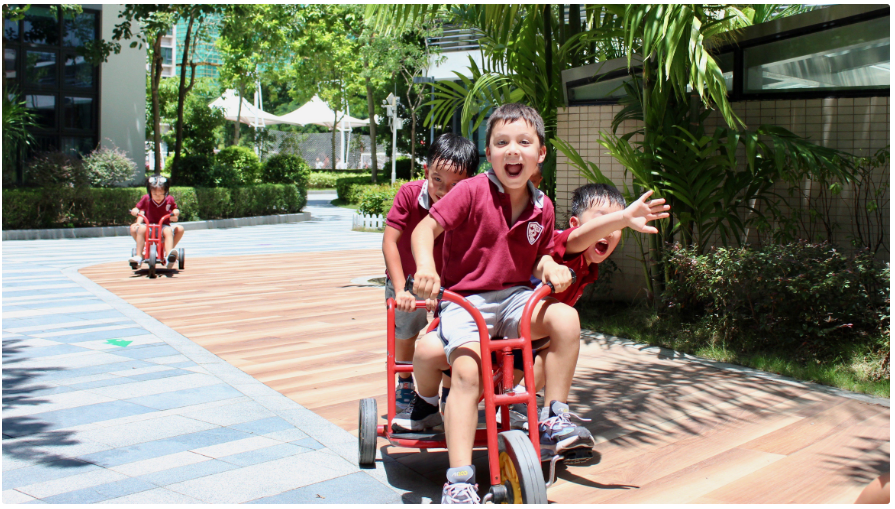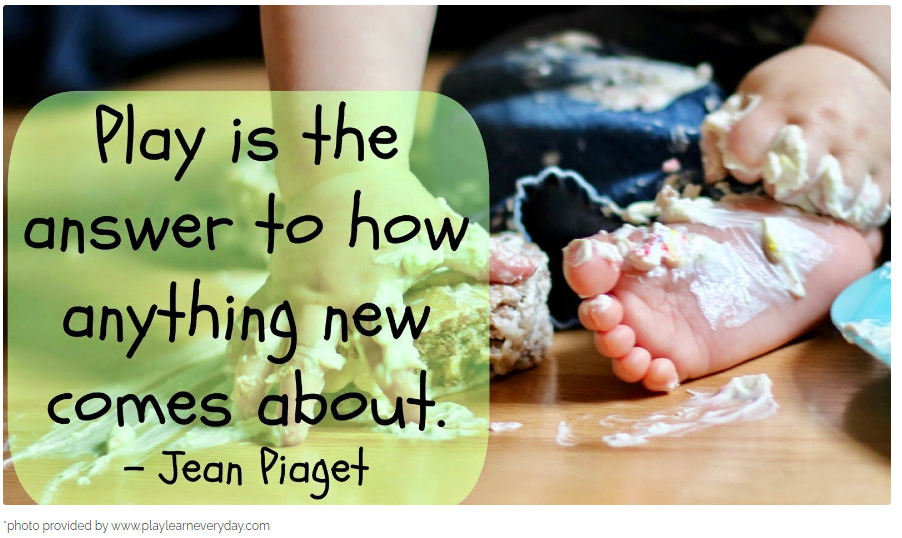
Play is an integral part of children’s lives and is a hallmark of children’s healthy development. The IB PYP program recognizes that play and inquiry go hand in hand. Research supports the effectiveness of the IB’s PYP in an early years setting. Play arises as a focus for development of language, social, cognitive and physical skill. Through interactions with other peer’s children develop social confidence and learn to regulate their behavior with a sense of independence. Language is acquired through pretend play where children use language to maintain the play episode, plan a story line and assign roles. Such pretend play allows children to generate multiple ways of expressing their thinking.
Play arises as a focus for development of language, social, cognitive and physical skill. - Lower PYP Coordinator
Cognitive development occurs when children learn to solve problems. For example, playing with puzzles enhance children’s memory skills as well as their attention span and engage in higher order thinking. Physical skills develop when children play out-door in jungle gyms, swings and slides. As children learn to reach, grasp, crawl, run, climb and balance, they develop gross-motor skills and playing with small toys develop fine motor skills (Children learn through play, 2011).
Smilansky. S (1968) developed a play training approach which emphasized adult intervention to enhance play. According to this theory, play is enhanced, and learning is promoted by arranging the environment, planning shared experiences, asking questions and engaging in discussions with children (Dockett & Fleer, 2002). At home, parents can support their child’s development by asking questions about the materials their child is using while at play, having the child explain why he/she chose to use it and what does it represent. These conversations will provoke children’s thinking and allow for thoughtful expression. It also helps the child understand that parents are involved in their learning journey and promotes strong familial trust and bonding.

Each day, ISNS faculty collaborate to create an environment that promotes the play based approach from the outdoor classroom to the activities they participate in each day, our early years students experience this approach in many different modalities. ISNS K4 students experienced this first hand in by exploring their central idea titled “Ideas and feelings can be expressed through play.” Using play dough as their play vehicle, students practiced representing their ideas with the dough. Each day they reviewed pictures from the previous play dough session and discussed what they created, what they saw their friends create and ways that the dough could be moved and manipulated. This sparked inspiration in others to come up with new ideas and for students to think more deeply about what they are making. Each day, the creations became more detailed. On the first day, most rolled the dough into snakes or snails but by the fourth day there were necklaces, gas masks, bugs, and more. By utilizing play through the manipulation of play dough, students were able to deepen their thinking and expand their creativity to visually showcase a progression from simplistic molds to more elaborate ones.
At ISNS, we believe in the play-based approach for our early years and we work to ensure that our students experience the breadth and depth of this approach to enhance their educational experience.
Contributed by: Blessy Monica, Lower PYP Coordinator and Kaitlin Carrig, K4 Homeroom Teacher
Play Based Learning